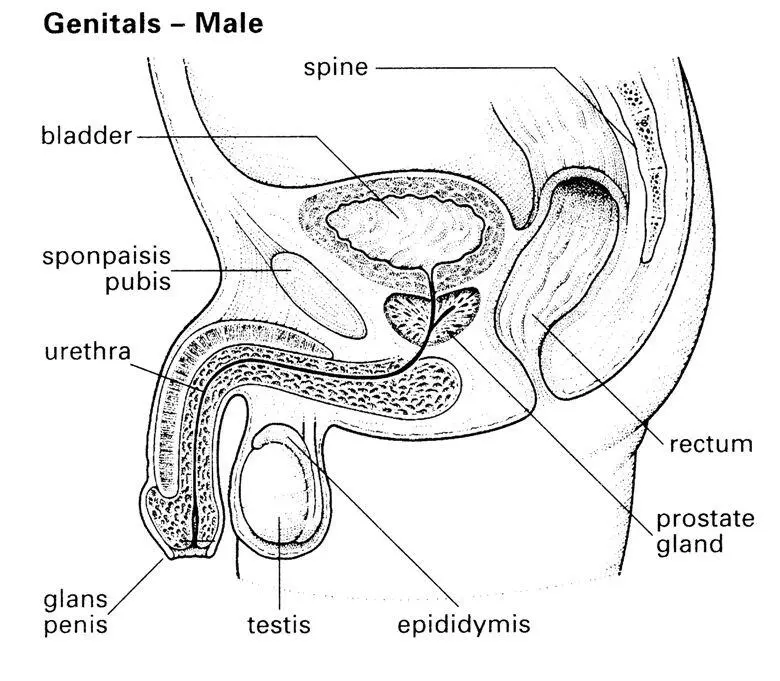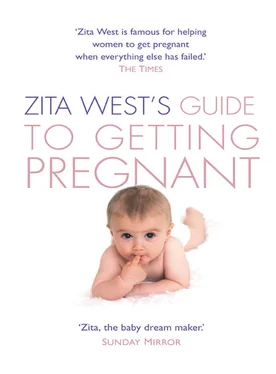Can I use saliva, KY jelly or egg whites for lubrication during intercourse if I am dry?
No, unfortunately saliva has been found to be quite detrimental to sperm. In laboratory conditions, sperm cannot swim if they are in contact with saliva or any other lubricant – either water – or oil – based – all of these have some effect on sperm motility (movement). Although this has not been tested in women (and would be quite hard to study!), one has to assume that the effect would be the same in the body. Saliva of course contains an enzyme, ptyalin, which starts the digestive process – digesting carbohydrates – so this is not good news for the sugars contained in sperm or their swimming fluids!
Lubricating gels block the sperm. Egg whites are protein and can trigger an allergic reaction in some women.
I don’t seem to have many secretions, yet they seemed plentiful when I was younger. Is this common?
Yes, as we get older the quantity and quality of our cervical secretions are reduced. This is one of the reasons why fertility rates are lower in older women. The other factor is often that when young we are often unaware of the significance of these secretions and may even be quite alarmed by them. Sometimes women feel the secretions are a sign of infection – or that they may have damaged themselves somehow.
It is also common for women to report that as soon as they start to look out for the secretions, they no longer seem to see them. The amount of secretions will vary from woman to woman and sometimes from one cycle to the next in the same woman. If you are having sex around your fertile time (which is of course pretty vital) then often some of your natural secretions will get mixed in with the seminal fluid, which then comes away a few minutes after you have sex (even if you are lying flat) and can give you the impression that you’ve fewer secretions than you really have.
What if I spot between periods?
This depends on when the spotting is occurring. The first thing to remember is that ANY unusual bleeding or spotting must be checked out by your doctor. It is important to keep your cervical smears up to date, as these check not only for pre – cancerous changes but also for signs of infection.
If any spotting has been checked out medically and you are told that there is no concern medically, the following information may be helpful. Some women get spotting towards the end of a period – this may be quite normal as the period dries up. Some women have spotting leading into a period. This should be recorded at the end of the cycle – with the new cycle (Day 1) starting on the first day that you notice fresh red bleeding. If you consistently get some spotting for a day or so before your red bleed starts (pre – menstrual spotting), this may be an indication that your progesterone level is falling and may require medical help.
Very occasionally women who are observing cervical secretions report slight spotting tingeing the wet stretchy secretions – this is nothing to be concerned about (provided you are having regular smear tests) and may simply be due to the fact that you are more aware of your secretions than ever before!
Some women notice a tiny spot or so of blood (or even more) around the time implantation is occurring – so this could be a very positive sign.
I seem to have a long cycle and have secretions nearly all of my cycle.
Although most women report that they are dry immediately after a period and when approaching the next period, some will observe secretions for most, if not all, of the cycle. Again, if you suspect any infection, get this checked by your doctor.
Quite a common reason for secretions throughout the cycle is a cervical eversion (where the inner lip of the cervix protrudes onto the outside of the cervix, causing an increase in the wetter type of secretions). This is more common after you have been on the Pill, or after pregnancy or miscarriage, and may go away of its own accord. See your doctor or practice nurse, who will be able to see if there are any signs of an eversion. It is not necessary to treat this, unless the secretions are causing trouble with increased wetness. Your doctor will be able to advise you.
Women can learn to distinguish cervical secretions more easily if they get expert help from a health professional trained in fertility awareness methods – such help can be found at www.fertilityuk.org.
When I take my temperature it seems to be very low, and never gets above 35.5°C. Is this a problem?
If your temperature does not seem to fit on the scale of the usual fertility chart, the most likely reason is either a faulty thermometer or inexperience in taking your temperature. It may be worth consulting a trained fertility practitioner. If you have a very low waking temperature – and you are sure you are taking it correctly – then do check this with your doctor. If you also have other symptoms such as tiredness, or are feeling the cold, then there may be a thyroid problem. Your doctor will be able to check your thyroid function as part of other hormone testing.
I suffer from PCOS and have very irregular cycles. How can I know when I should have sex?
This is difficult. Many women with PCOS have erratic ovulation and confusing fertility symptoms, and can have patchy secretions throughout the month due to erratic hormone levels. Ovulation kits will be of no value if your level of LH is raised or high, as it sometimes is when you have this condition.
Plan to have frequent, regular sex throughout the month. I have seen many women conceive with PCOS; the good news is 70 per cent conceive naturally and 20 per cent conceive with the help of appropriate medication.
If you are older, have been diagnosed with PCOS and have made all the necessary lifestyle changes, don’t leave it too long before you consult with your doctor about problems getting pregnant – it’s possible you may not be ovulating.
understanding male fertility
Male Reproductive Organs

A man’s general health is just as important to conception as a woman’s, although this often gets overlooked by fertility experts, who tend to be gynaecologists and obstetricians – specialists in female, not male, reproductive health. And your health is never more important than when you and your partner are trying to conceive. Very often, problems in conception are thought to be wholly the woman’s, but this is not the case. When a couple have a problem with conception, the problem is only with the woman in around 35 to 40 per cent of cases and with the man between 30 and 35 per cent of the time. Problems that arise from combined difficulties in both partners account for the other 25 to 35 per cent of cases.
I do think that, slowly, the message is getting through: The health of the sperm is just as important as a woman’s gynaecological health when it comes to conception. At our clinic we will offer a semen analysis straight away; if you focus all clinical attention on the woman, valuable fertility time may be wasted.
Unlike women, men do not have cycles which could alert them to the fact that there may be problems – so very often it can come as a real shock when the results of a semen analysis are poor. And semen analysis is only part of the story: the sperm may look fantastic but there may be infections or DNA fragmentation, which will not show up on semen analysis. Specimens sent to standard general microbiology or pathology labs may not receive immediate attention, and morphology assessment in particular (see page 286) may be inadequate, giving false or misleading results. We have seen this happen so many times.
Читать дальше













